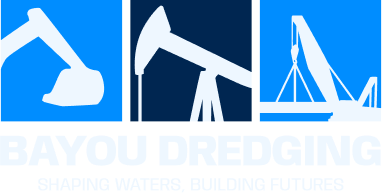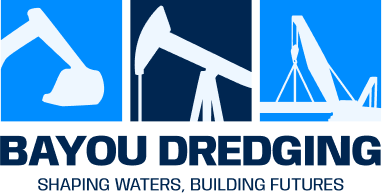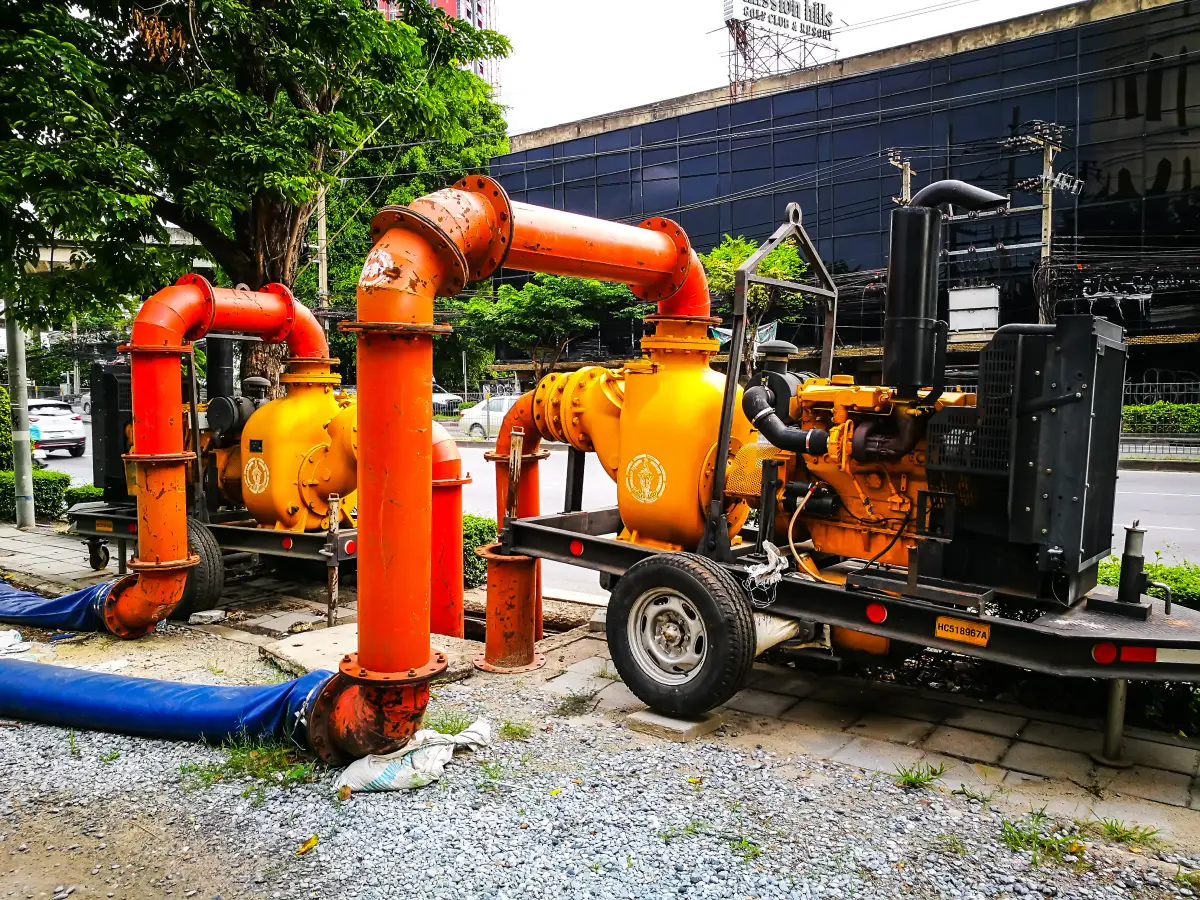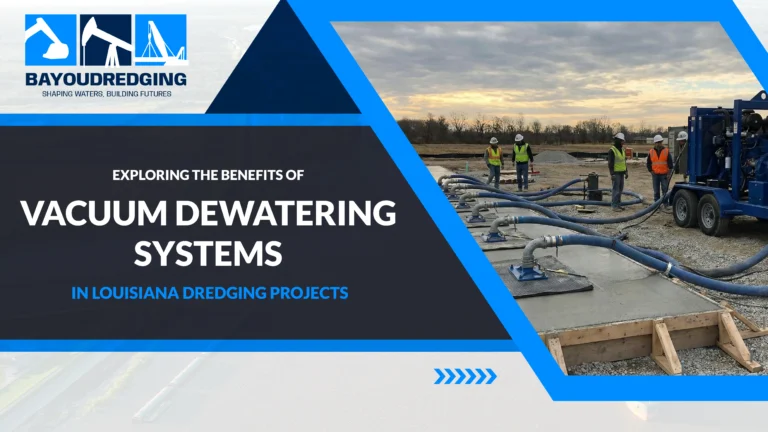Modern infrastructure and construction projects demand efficient, reliable, and adaptable water management systems. Whether for excavation, tunneling, mining, or flood response, dewatering is essential to maintain productivity and safety. However, owning pumps can tie up capital and create long-term maintenance burdens. This is where dewatering pump rental offers a smarter, more flexible alternative. By choosing rental solutions, contractors gain access to high-performance equipment, technical support, and cost predictability tailored to each project’s scale and duration.
Cost Efficiency and Financial Flexibility
One of the biggest advantages of choosing dewatering pump rental over outright purchase is its financial practicality. Contractors, site managers, and project planners often face fluctuating water-removal demands depending on the project phase, site conditions, or season. Owning dewatering pumps entails significant upfront costs, long-term maintenance, and depreciation, even when the equipment remains idle. Renting eliminates these burdens and ensures spending is directly tied to project duration and output.
Why Renting Makes Financial Sense
- No Capital Lock-In: Instead of purchasing high-capacity dewatering pumps, companies can allocate funds toward active project needs.
- Predictable Budgeting: The pay-as-you-use model enables precise cost tracking and aligns expenses with specific project timelines.
- Reduced Overheads: Storage, insurance, and repair costs are absorbed by the rental provider, freeing contractors from long-term liabilities.
Short-Term and Seasonal Cost Advantage
For contractors working on temporary or seasonal projects, owning equipment can quickly become uneconomical. Rental options offer flexibility to scale up or down without affecting cash flow or asset utilization rates. A dewatering pump for hire can be deployed for days, weeks, or months as needed, with no idle downtime or depreciation losses.
Financial Sustainability in Operations
Over time, reduced ownership and maintenance costs translate into improved financial sustainability. Companies gain access to modern, energy-efficient dewatering pumps without incurring heavy costs for upgrades or replacements. This model helps both large-scale infrastructure projects and smaller contractors stay agile and cost-efficient.
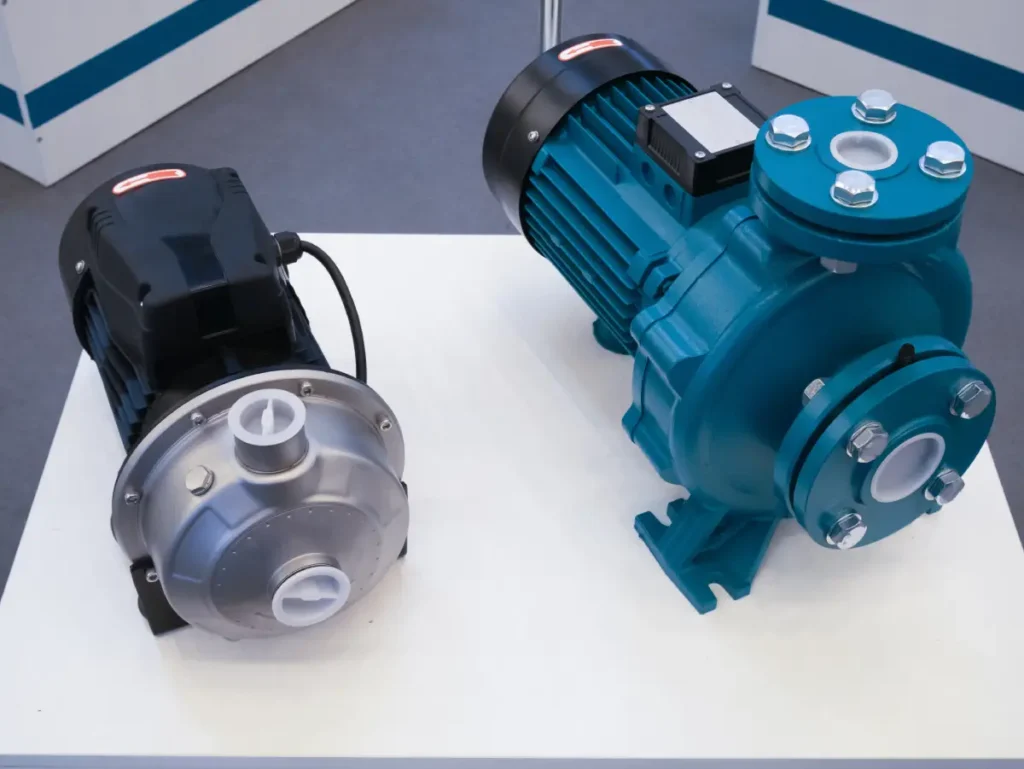
Access to the Latest and Most Efficient Equipment
Opting for dewatering pump rental gives contractors instant access to the latest equipment without the burden of ownership. Rental providers regularly update their fleets with advanced, fuel-efficient, and high-performance models designed for modern water management demands. This allows users to operate with equipment that delivers higher flow rates, lower energy consumption, and improved reliability in challenging site conditions.
Up-to-Date Technology and Configurations
- Modern Fleet Options: Rental services typically offer a variety of electric and diesel-driven dewatering pumps, allowing users to match the setup to site conditions and power availability.
- Efficiency and Performance: Newer models are engineered for optimized suction, discharge, and head performance, minimizing downtime and operational costs.
- Environmental Compliance: The latest pumps meet strict emission and noise standards, helping companies stay compliant with regulatory requirements on environmentally sensitive sites.
Enhanced Reliability and Uptime
Using a dewatering pump for hire means the equipment has been inspected, serviced, and tested before every deployment. This guarantees dependable performance and reduces the risk of breakdowns that can stall construction, mining, or remediation projects. In addition, access to advanced models improves fuel efficiency and water-handling capacity, directly translating into faster project completion.
Continuous upgrades in rental fleets ensure that clients always work with top-performing dewatering pumps without worrying about obsolescence or costly maintenance cycles.
Technical Support and Maintenance Included
Another major reason many contractors prefer dewatering pump rental is the built-in technical support and maintenance coverage that comes with it. Unlike purchased equipment that requires an in-house maintenance team and spare parts inventory, rental pumps are managed, serviced, and tested by the provider before and during every deployment. This ensures that each unit performs optimally, reducing operational risks and downtime.
24/7 Assistance and Expert Guidance
Rental companies typically provide round-the-clock technical support to keep operations running smoothly, even in remote or emergency locations. Their field technicians and engineers can assist with:
- On-site setup and connection to pipelines or power systems
- Troubleshooting pressure loss, cavitation, or flow inconsistencies
- Regular monitoring and preventive servicing to extend the performance life
Such expert availability minimizes delays that can otherwise lead to costly work stoppages, especially in time-sensitive dewatering projects such as foundation excavation, mine drainage, or flood management.
Preventive Maintenance and Performance Assurance
Every dewatering pump for hire is inspected and tested before delivery to confirm flow rates, suction capacity, and pressure consistency. Providers maintain detailed service logs, ensuring each pump operates at peak efficiency and within OEM standards. Preventive maintenance is handled at no additional cost to the client, covering essentials like:
- Filter replacements and seal inspections
- Lubrication and calibration of mechanical components
- Checking electrical and hydraulic systems for leaks or wear
This level of service eliminates the unpredictability of in-house maintenance and keeps projects on schedule without unplanned expenses.
Operational Reliability and Reduced Downtime
Unexpected equipment failure can disrupt site progress, but rental agreements typically include rapid-response service or unit replacement. Having access to backup units and trained technicians on demand ensures maximum uptime. For high-volume or critical sites, some rental providers also offer scheduled maintenance visits and real-time monitoring support to prevent breakdowns before they occur.
Why It Matters for Long-Term Profitability
Outsourcing equipment upkeep reduces the total cost of ownership while ensuring that every pump on site meets manufacturer performance benchmarks. It also frees up project teams from technical complexities, allowing them to focus on productivity and timelines.
Reliable support, continuous maintenance, and service accountability make dewatering pump rental a cost-efficient and low-risk choice for modern contractors and industrial operators.
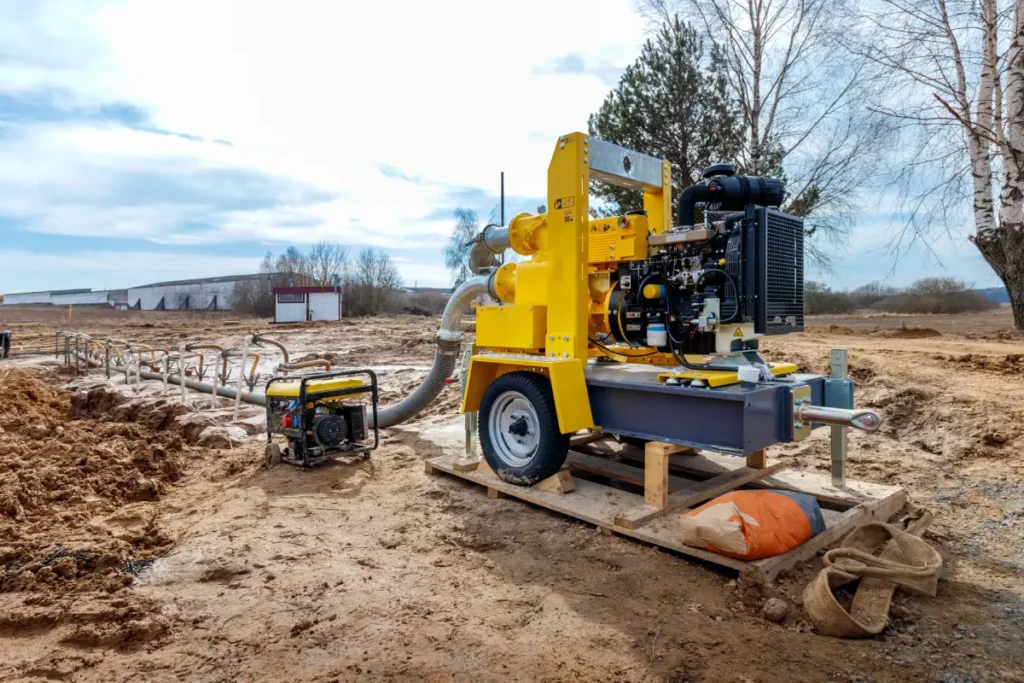
Operational Flexibility and Scalability
A key advantage of dewatering pump rental is the flexibility it offers amid changing project conditions. Water management requirements often shift based on soil type, groundwater levels, rainfall, or excavation depth. Renting allows contractors to adjust pump capacity, power configuration, or flow rates on short notice, ensuring smooth adaptation without unnecessary capital strain.
Scalable Solutions for Every Project Phase
When dewatering needs increase during the active excavation or foundation stages, additional pumps can be rented and deployed immediately. Once the workload decreases, they can be returned with no long-term financial burden. This scalability helps project managers maintain control over costs while ensuring optimal pumping efficiency.
Common scaling use cases include:
- Seasonal Operations: Expanding pump capacity during monsoon or flood-prone periods and scaling down during dry months.
- Variable Ground Conditions: Upgrading to higher-head or larger-capacity dewatering pumps when working on deeper or wider excavation sites.
- Emergency Response: Deploying backup units during unexpected water inflow or mechanical failure to maintain operational continuity.
Streamlined Mobilization and Demobilization
Rental providers are equipped to deliver ready-to-run systems directly to the job site. Most dewatering pump rentals include transport, setup, and commissioning services, reducing the logistical complexity of procurement. Contractors can start dewatering within hours, rather than waiting for long purchase or import cycles.
This is especially valuable in:
- Infrastructure and Mining Projects: Where multiple sites operate simultaneously, requiring rapid mobilization and reallocation of equipment.
- Short-Term or Remote Projects: Where transporting owned pumps across regions would be costly and time-consuming.
Adapting to Site Power and Environmental Conditions
Rental fleets often include both diesel and electric-driven units, allowing users to choose based on energy availability or emission requirements. Electric dewatering pumps are ideal for sites with stable grid access, while diesel units offer independence in remote areas. The flexibility to select equipment that aligns with project goals and environmental regulations adds operational depth and convenience.
Optimizing Resource Allocation
Owning equipment locks capital into assets that may remain underutilized between projects. Renting, however, ensures that financial and technical resources are dynamically allocated only where and when they are needed. This adaptability gives contractors the freedom to focus on productivity rather than asset management.
Supporting Continuous Operations
In multi-phase construction or dredging projects, uninterrupted dewatering is critical to maintaining stability and safety. Rental contracts often include replacement units or quick turnaround maintenance to ensure zero downtime. With scalable options, contractors can confidently manage water levels without the uncertainty of breakdowns or delays.
By combining adaptability, scalability, and simplified logistics, dewatering pump rental empowers companies to handle varying project scopes with precision and control. It supports both short-term and long-term goals while maintaining maximum efficiency across diverse site environments.
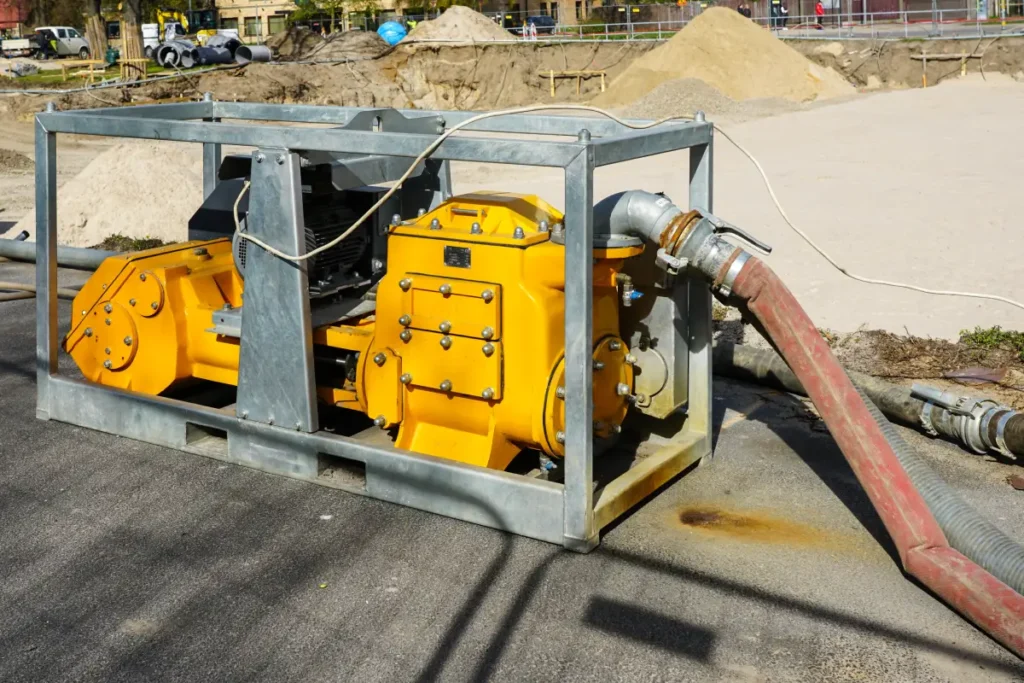
Reduced Downtime and Logistics Burden
Downtime in dewatering operations can have severe consequences, from delayed schedules and increased costs to safety hazards on site. Choosing dewatering pump rental over buying significantly reduces this risk because rental providers handle both equipment readiness and logistics. Every unit is pre-tested, serviced, and calibrated before dispatch, ensuring immediate usability and minimizing project interruptions.
Streamlined Deployment and Setup
When purchasing dewatering pumps, companies must manage their own shipping, assembly, and system integration. In contrast, rental partners handle transportation, installation, and commissioning, making the process nearly turnkey. This ensures that pumps arrive ready to operate—fully tested for suction, discharge, and pressure parameters.
Many rental fleets also offer modular or trailer-mounted pumps, which are easy to position and connect to existing pipelines. This setup saves time in critical operations like foundation dewatering, construction drainage, or mine water removal, where every hour of downtime translates to additional costs.
No Long-Term Storage or Maintenance Logistics
Owning equipment means storing heavy, high-maintenance pumps when they are not in use. They require controlled environments to prevent corrosion, seal deterioration, or electrical faults. Renting eliminates the need for dedicated storage yards, maintenance staff, and spare parts inventory. Once a project is complete, the pumps are simply returned to the provider.
Rental companies take full responsibility for:
- Cleaning and Inspection: Ensuring pumps are ready for future use.
- Transportation: Managing pickup and delivery between sites.
- Servicing and Testing: Conducting routine diagnostics and replacing worn parts.
This removes a significant logistical burden from contractors, particularly those handling multiple concurrent projects.
Rapid Replacement and Backup Availability
Another operational advantage of hiring a dewatering pump is the ability to access replacement equipment at short notice. If a pump underperforms or fails due to unexpected conditions, rental companies can quickly supply a replacement—often within hours. This prevents downtime that could otherwise halt excavation or construction activities.
Some providers even maintain on-call technical teams or mobile service units that travel to job sites for immediate repairs or part swaps, ensuring minimal disruption.
Cost and Time Savings in Transport
Transporting owned dewatering pumps between distant projects can be expensive and time-intensive, especially for large centrifugal or submersible units. Rental options reduce this expense, as logistics are included in the service package. Providers handle routing, permits, and safe delivery, helping contractors avoid delays caused by transportation or equipment unavailability.
Consistent Performance Across Shifts
Many dewatering projects operate around the clock, especially in mining, tunneling, and flood control. Rental equipment is maintained for high uptime, allowing continuous performance under demanding conditions. This consistency ensures that water levels remain controlled, supporting both safety and productivity on site.
By outsourcing logistics, maintenance, and equipment readiness, dewatering pump rental transforms water management from a technical obstacle into a predictable, streamlined process. Contractors gain more control over schedules while minimizing idle time, ensuring that every stage of the project stays on track.
Compliance and Safety Assurance
Ensuring that all equipment on-site meets environmental, operational, and safety regulations is an essential part of any dewatering project. When opting for dewatering pump rental, contractors benefit from equipment that is pre-certified, maintained to industry standards, and regularly inspected to ensure compliance. This removes a major layer of responsibility from the client while guaranteeing that every unit performs within legal and environmental limits.
Pre-Tested and Certified Equipment
Reputable rental providers maintain detailed records of performance checks, emissions testing, and safety certifications. Each dewatering pump is inspected for pressure consistency, leak prevention, and mechanical integrity before delivery. This process ensures:
- Compliance with diesel engine emission standards.
- Adherence to noise control and occupational safety guidelines.
- Reliable grounding and electrical safety for electric-driven units.
For contractors working on infrastructure, industrial, or government-funded projects, this level of certification is often mandatory. Rental agreements make it easier to meet those requirements without investing in in-house testing or maintenance programs.
Meeting Environmental Regulations
Modern dewatering pumps are designed with sustainability in mind, and rental fleets typically include low-emission or electric-driven models. These units minimize the environmental footprint of site operations, aligning with increasingly strict environmental laws and corporate sustainability goals.
Environmental benefits include:
- Reduced carbon emissions through high-efficiency engines.
- Controlled discharge systems to prevent contaminated runoff.
- Lower noise levels are suitable for urban or residential project zones.
By renting equipment that already meets these standards, contractors can focus on execution instead of regulatory paperwork or retrofitting older systems.
Safety-Focused Operational Standards
Safety is central to dewatering operations, especially in excavation or confined-area projects. Rental providers maintain compliance with occupational safety standards by ensuring each pump is equipped with features such as automatic shut-offs, leak detection, and pressure relief valves.
Additionally, most rental agreements include access to trained personnel who can handle safe installation, startup, and monitoring. This support helps prevent common hazards such as pump cavitation, hose bursts, and overheating during extended use.
Documentation and Accountability
Rental contracts include transparent documentation, covering service history, inspection reports, and compliance records. Having this information readily available helps project managers pass site audits and regulatory checks with confidence. In many cases, the documentation also supports insurance and safety certification requirements.
Reducing Liability for Contractors
With equipment compliance handled by the rental provider, contractors minimize legal and operational risks associated with malfunction or non-compliance. This reduces potential liabilities, project penalties, and downtime caused by safety violations.
By choosing dewatering pump rental, companies gain peace of mind knowing their equipment not only performs efficiently but also meets the latest safety and environmental standards. This allows them to maintain both operational excellence and regulatory compliance with ease.
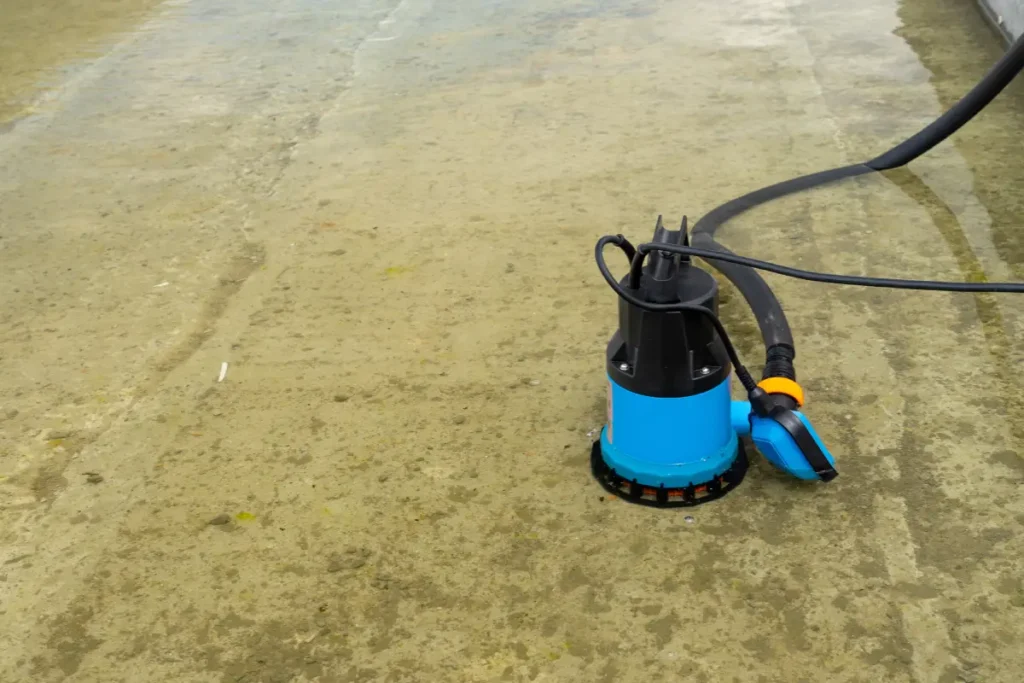
Supporting Short-Term, Remote, and Emergency Projects
In many industries, water control needs can appear suddenly or vary drastically across locations. Choosing dewatering pump rental enables companies to respond quickly to short-term, remote, or emergency without committing to the long-term costs of ownership. This flexibility is especially valuable for construction firms, municipalities, and mining operators who face unpredictable site conditions or urgent drainage requirements.
Fast Response for Time-Sensitive Operations
When a project site floods, a storm causes waterlogging, or a trench fills faster than expected, owning a dewatering pump may not be the most practical solution. Rental providers maintain large, ready-to-deploy fleets that can be dispatched within hours. This ensures operations resume quickly, minimizing downtime and preventing secondary issues such as soil instability or equipment damage.
Rental companies also handle the logistics of delivery, setup, and commissioning, so even in emergencies, they can be managed without specialized in-house resources.
Ideal for Remote or Hard-to-Access Sites
Transporting heavy dewatering equipment to remote mining sites, isolated infrastructure projects, or offshore operations can be complex and expensive. Rental services simplify this process by providing modular or containerized pump systems that are easy to ship and assemble. These setups often include:
- Trailer-Mounted Units: Allowing rapid mobility between work zones.
- Skid or Container Packages: Pre-assembled with hoses, fittings, and power options for plug-and-play use.
- Support Accessories: Such as discharge lines, suction strainers, and control panels that match the local site conditions.
This ensures full system compatibility and operational readiness even in locations with limited infrastructure.
Flexible Duration and Contract Options
A key feature of dewatering pump for hire services is the ability to customize rental durations. Whether it’s a two-day emergency operation, a month-long construction schedule, or a seasonal mining campaign, rental contracts can be adapted to match the exact project timeline.
Flexible contract options include:
- Daily or Weekly Rentals: For emergency pumping or quick-response tasks.
- Monthly or Long-Term Rentals: For consistent water removal during extended excavation or drainage operations.
- Renewable Contracts: Allowing projects to continue seamlessly without delays in equipment availability.
This contract flexibility helps organizations manage cash flow efficiently while maintaining uninterrupted site operations.
Reducing Risk in Uncertain Environments
Some projects have unpredictable dewatering needs that make ownership risky. For instance, a construction firm might not require pumps once a foundation is complete, or a municipality may only need extra units during the rainy season. Renting eliminates the risk of investing in equipment that might sit idle for months or years.
It also allows users to test various pump types or configurations before committing to a long-term solution. This helps teams identify the best equipment for future projects without the financial risk of full ownership.
Emergency Readiness and Disaster Recovery
Flood mitigation, drainage of containment ponds, or recovery after natural disasters often requires rapid mobilization of high-capacity dewatering pumps. Rental fleets are built for such scenarios, offering large inventories of both portable and high-volume units. Providers can deliver multiple pumps with supporting accessories, ensuring a quick, coordinated response across affected areas.
Rental support teams often include engineers trained to handle high-pressure situations, assisting with system design, hose layout, and on-the-spot flow rate optimization.
A Smarter Strategy for Temporary Needs
For temporary operations, remote setups, or unexpected emergencies, dewatering pump rental ensures that contractors always have the right equipment on hand without financial strain or storage concerns. This model helps businesses stay agile, responsive, and efficient even when facing unpredictable project conditions or environmental challenges.
Conclusion: Smarter Project Management Through Dewatering Pump Rentals
Choosing dewatering pump rental over ownership empowers contractors to manage projects with greater flexibility, efficiency, and financial control. It eliminates unnecessary maintenance, ensures compliance with safety and environmental standards, and provides access to modern, reliable equipment when it’s needed most. At Bayou Dredging, we help clients streamline water management with high-quality dewatering pumps, rapid deployment, and expert support tailored to their project needs. Connect with us to explore how our rental solutions can make your next operation more efficient and cost-effective.
